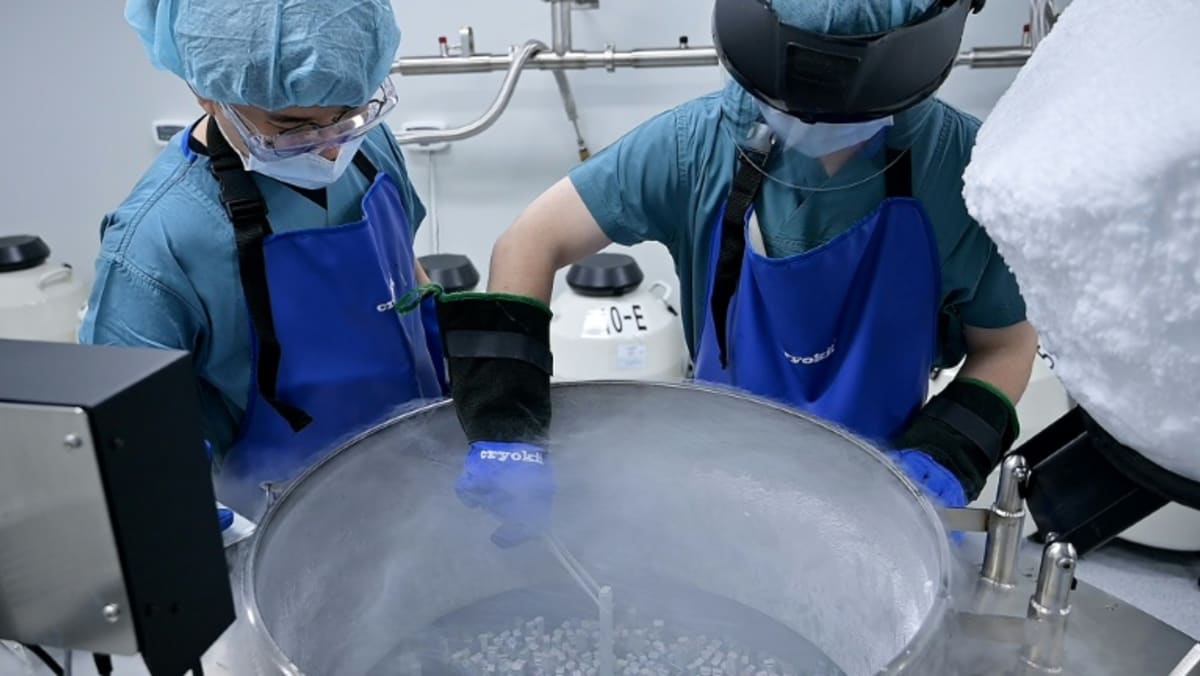
SEOUL: As South Korea’s birth rate hits fresh lows, Seoul city officials have a plan to help – subsidised egg freezing. But experts warn the initiative is unlikely to reverse precipitous demographic decline.
At just 0.7 births per woman late last year, South Korea has one of the lowest birthrates in the world, far below the replacement rate, meaning the population is ageing – and shrinking – rapidly.
The government has poured billions of dollars into trying to encourage more births, with one of the latest efforts involving Seoul city authorities offering to subsidise the cost of a round of egg freezing.
Jeong, who is in her 40s, decided to take them up.
“I felt the pressure to have a baby because of my age, which led me to consider getting married quickly,” Jeong, who asked to be identified only by her surname, told AFP.
“When I reached my mid-30s, I suggested to the men I dated that we should get married as soon as possible. But it just didn’t work out,” Jeong added. So she turned to a backup plan.
While single women can freeze their eggs, in reality the scheme will only assist women who go on to marry, as clinics offering intrauterine insemination (IUI) and in vitro fertilisation (IVF) typically require marriage certificates, making the procedures virtually impossible for singles or same sex couples to access.
Egg freezing theoretically allows women to preserve their fertility, although it is seen as being more likely to succeed if women undergo the procedure before egg quality starts to sharply decline, typically from age 38 onwards.
Having frozen her eggs, Jeong said she no longer felt “as anxious” about being single and missing out on having a baby – and was ready to wait until she found the right person.
“Now that I have my frozen eggs as insurance, I can take my time,” she told AFP.
Helping Korean women to freeze their eggs was determined by Seoul city authorities to be “the most practical solution” for “investing in future childbirth possibilities”, the municipal government said.
“As the age of marriage and pregnancy continues to rise, and women’s participation in society becomes more prominent, there is a growing interest among unmarried women who aspire to conceive and give birth in the future,” it added.

